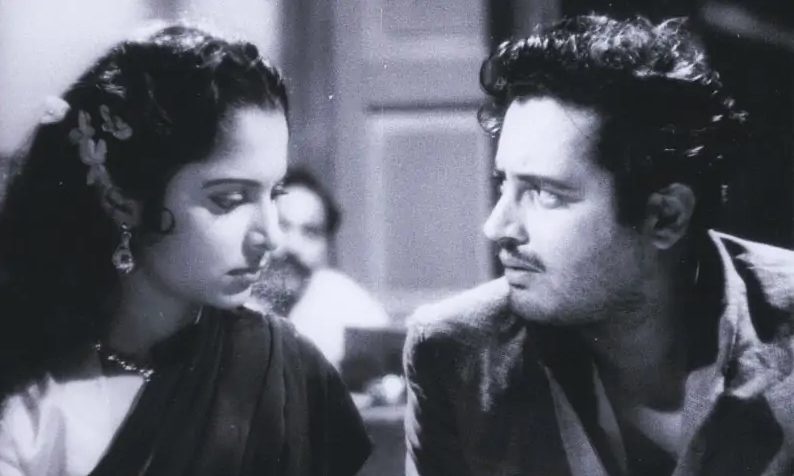A lecture on Indian Cinema - "An Encounter at the Oscars: The Many Journeys of Pyaasa"

A lecture on Indian Cinema - "An Encounter at the Oscars: The Many Journeys of Pyaasa"
One of the most iconic melodramas of Bombay cinema, Guru Dutt’s Pyaasa (Thirst), was released in 1957. Despite its broad appeal, the film was not selected as India’s official entry for the Best Foreign Language Film category at the Academy Awards in the following year. Instead, it was Mehboob Khan’s Mother India (1957), a nation-building project actively supported by the Indian state and championed in the Soviet Bloc, that got to represent the South Asian nation at the Oscars, where it lost to Federico Fellini’s Nights of Cabiria (1957). The lack of recognition received by Pyaasa has often been attributed to the film’s explicit critique of the Nehruvian state and its socialist developmentalism. This talk analyzes the two major figures in the film that contributed to its marginalization, and proceeds to showcase how these figures, especially the proverbial prostitute with a golden heart, offer strong transnational resemblances with Fellini’s classic film—even if the two films did not meet at the Oscars.
Parichay Patra works as Assistant Professor in the Department of Humanities and Social Sciences at the Indian Institute of Technology Jodhpur. He received an MA in English literature from Jadavpur University (2008), an MA in Film Studies from Jadavpur University (2011), and a PhD in Film & Screen Studies from Monash University, Australia (2016). His areas of interest include Global South cinemas, transnational cinema, histories and aesthetics of Indian and other new wave cinemas during the long 1960s. He is currently working on his first book, a transnational history of the Indian New Wave cinema, Nostalgia for the Light: Post-May, Global Waves, and the Indian New Wave. He is the co-editor of Sine ni Lav Diaz: A Long Take on the Filipino Auteur (Intellect & University of Chicago Press, 2021), Salaam Bollywood: Representations and Interpretations (Routledge, 2016), and Bollywood and Its Other(s): Towards New Configurations (Palgrave Macmillan, 2014). His writings have appeared in Transnational Screens, Senses of Cinema, Journal of the Moving Image, and Synoptique. Previously, Dr. Patra has served as an assistant professor at the Dept. of Humanities and Social Sciences, BITS Pilani Goa Campus (2017-19), and as a visiting researcher at the Instituto Investigciones Gino Germani, Facultad de Ciencias Sociales, Universidad de Buenos Aires, Argentina, in the Summer of 2018.

